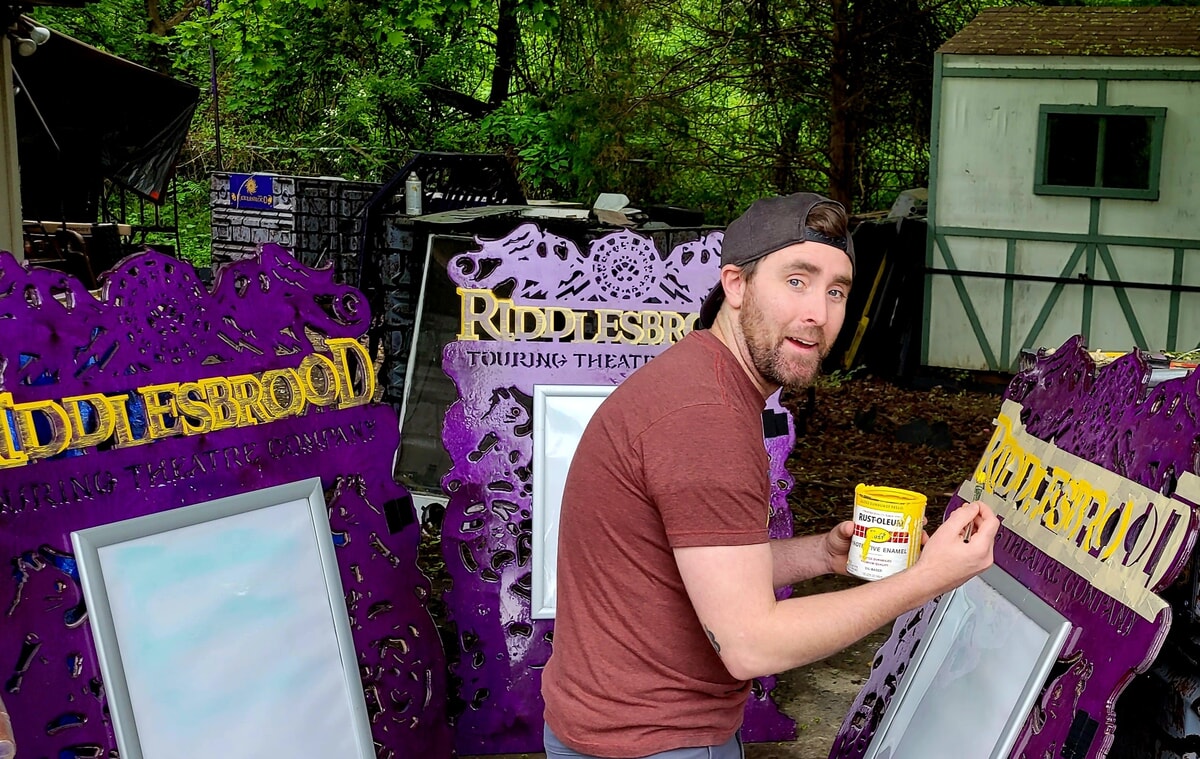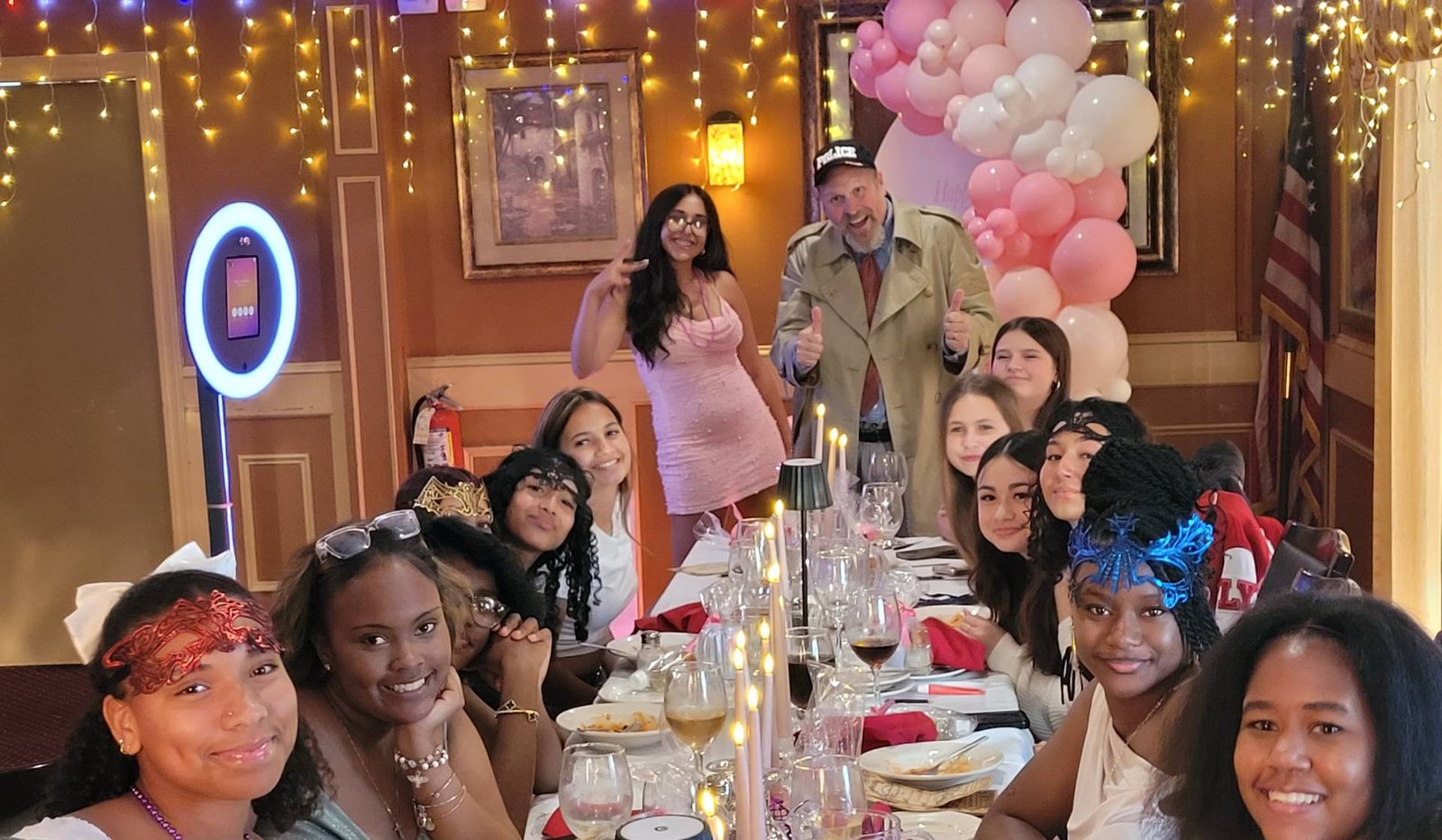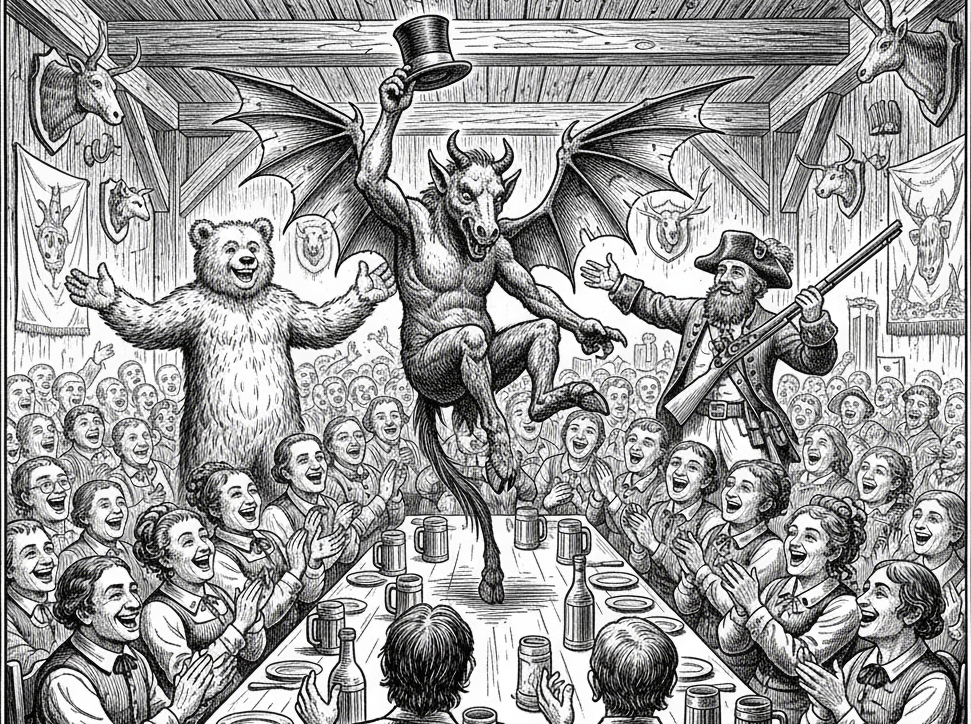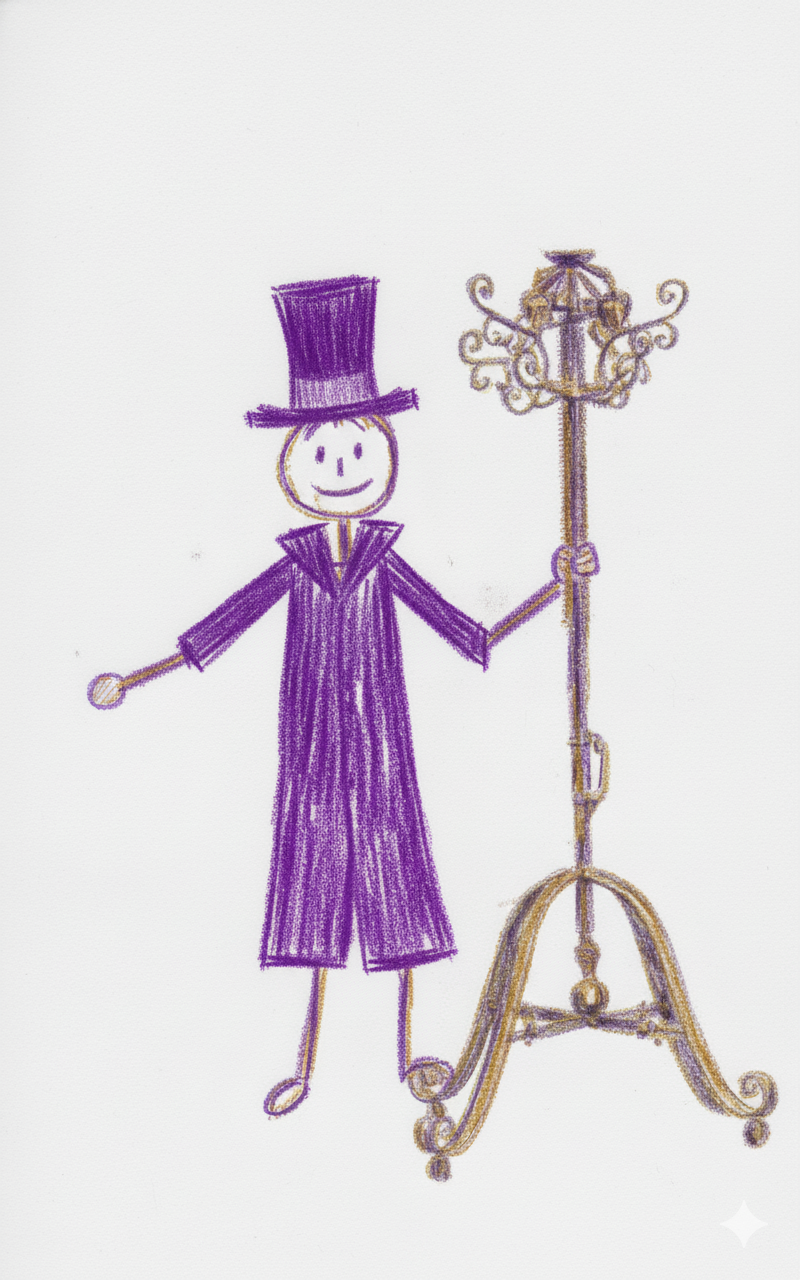Professor T. Halberd
9 years ago
A Baffling and Mysterious Mark
Hello, my name is Doctor T Halberd, from Princeton New Jersey. I was to follow in my fathers footsteps and become an archeologist but as my life would have it, I was pulled in a different direction. The incident that diverted me was a strange—unexplainable dread for which I will ever after seek the true meaning of....Since the very earliest times, people have used symbols to mark their services and products in the marketplace to differentiate themselves from others. However, symbols are used for more than that. These pictograms can also be used to ward off evil spirits, or protect oneself from the evil eye! Some have asked what the meaning of the Riddlesbrood mark is. A figure, suspended as a puppet, three tines at its left hand, three spheres at its right; surrounded by a crowd. Certainly a curious and mysterious sign, and one not easy to altogether grasp.
However, I have studied this glyph for some time and have traveled the world picking up small cues about its meaning along the way. You may remember, if you have been following my investigations over the years, that i originally found this symbol in the form of self adhering stickers placed at gas pumps around the NJ and PA areas. Some have also seen it flying as a flag at parades in south jersey! I have also read “The longest brochure in the world” and from it, have unearthed a great deal of information on this hidden subject. Although I am by no means an expert symboligist, for the sake of our curiosity, I will endeavor to unlock some of its secrets to the best of my ability for you, the reader.
The Meaning
Let me first start with the figure in the center of the image. It is a man, suspended from what appears to be puppet-like control arms. At first, I believed that this simply alluded to the concept of the actor; how they are but puppets to the will of the director. Yet, after reading some of the passages in “The longest brochure in the world”, I came to an entirely different conclusion. This figure may very well signify a deeper truth; the concept that mortal beings, in and of themselves, are but puppets. Again, this is merely a conjecture on my part. But it may allude to the idea of the soul or a ghost.
The tines or three pointed goatee, as some have called it, can be found in the lower right hand side of the figure from the perspective of the viewer. You will notice what can be construed of as three distinct claws or scratching nails that protrude from the border (Or the chin of the face, whichever you prefer). This has proved to be a rather difficult part of the symbol for me to discern. A colleague of mine first posited the idea that the “claw”, as he termed it, refers to a primal; bestial instinct that is possessed by most actors. Indeed, he seems to have had little respect for the occupation, as he told me that “All actors are rude creatures, who prefer an existence of beer and brothels to respectable pursuits.”.
Personally, I do not hold that opinion myself. Although I do find most actors to be of a loathsome sort, I feel strongly that the three tines of the symbol hold a completely different meaning. My research has lead me to the belief that the tines are, in fact, a punctuation (a linguistic term for a conventional mark used to make written words clearer). But I will discuss this later when unraveling the secrets of the “Crowd” encircling the glyph. Upon close examination of the tri-dot, or three spheres, as some have termed them in the lower part of the symbol and on the left side, one can clearly make out three dots in a pyramid like configuration. To me, the meaning of this is straight forward. It is a representation for “Order” or “correct arrangement” of things. I refuse to get into the ridiculous speculations of some cranks (Madam Cluedefti, first and foremost) and her assertion that the dots refer to some ancient ‘Rule of three’. I assume you have not read her amateurish works, and will not waste breath on them here. Lastly, and on a subject that has become my life’s obsession, are the faces. You will clearly observe that around the circumference of the mark appears a series of animated faces. While many have suggested that they are ‘masks’, a simple convention of theaters since the times of the ancient Helots, it is my belief that they are, in fact, a secret and hitherto undiscovered language!
I also encountered these enigmatic faces when I was only twenty in a context far removed from ‘Touring Theater’, though I have no time to delve into this occurrence, and frankly, it is such that I wish I could forget it. Nevertheless, I can assure you that these faces are no mere decoration. I have met with them many times and in many dark corners of the garden state. Much of the time, in plain sight, yet unrecognized. After years of solitude in my attic, I have concluded that the arrangement of the eyes, and mouth are a form of encoding by which the meaning of the faces can be discerned—A clandestine philological and orthographic cipher.
My translation of these faces in this logo disturbed me greatly, but I feel that it is my duty as a doctor to make the truth of it as public as I can.
It reads simply- “He who grins; Wins.”


A Detailed Description of the Harken Symbol
Behold, an emblem of unyielding, inscrutable power, as impenetrable and foreboding as a silent sundial delineating the inescapable demise of each fleeting moment. Enthroned at its epicenter, a lonely figure — representing the vacuous allure of human volition — levitates, shackled not by chains, but veiled strings of an astute, hidden sovereignty. The figure conjures power, allowed a delicate balance, a freedom lightly constrained, to enact a dance of potent creation. To his spectral left, three orbs, not merely circles, but spherical prophets of impending doom, juxtaposed like instruments of the apocalyptic. And to the right, scratches! Three violent tines etched by the corrosive fingers of rebellion, scraping through the fabric of his tethered reality.
Encircling this theatre of regal grandeur, faces or perchance masks, forged of both reverence and terror, stand guardian. Horned sentinels that envelop the captive player within an impervious fortress, safeguarding him from external perils. Amidst their stoic vigil, not simple patterns but voracious, swirling maelstroms of complexity weave a periphery of encumbered opulence, enshrouding the tableau with a hauntingly splendid veil.
In its stark yet splendid portrayal, the emblem becomes a sinister guide, ushering a mysterious power into our tangible realm. This elusive force, perpetually shrouded in a mystifying charm, captivates its audience. Emerging amidst a tapestry both opulent and treacherous, it seeks to intertwine our reality with its strange, instructive arts, crafting a symphony that weaves spectral guidance with enthralling mastery.




